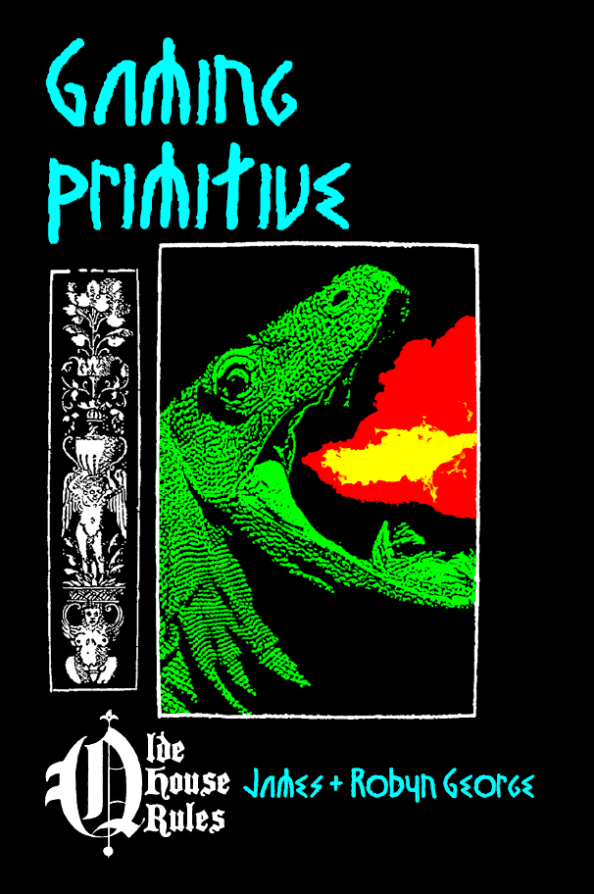RPGs Inspired by Myth
It is wrong to say that old school table top RPGs and the original old edition games were and are poor simulations that chart players on a course to some pretentious make believe journey because they are based on poorly researched quasi-medieval settings. Role playing games run deeper than that, and here's how.
The original edition of the most popular RPG was largely inspired by literature. You've got Tolkien in there with other human "races" such as Elves and Dwarves and others, you've got Burroughs references to creatures in an alternate universe where Mars is habitable, you've got a Vancian style world where powerful magic is possible, you've got magical beasts thrown in helter skelter from various traditions and literature, and so on. These writer's who inspired the original D&D were themselves inspired by other story tellers, and even the world of Icelandic myths is seen directly in Tolkien. Burroughs does as well - although often the sources are cringeworthy colonialist myths about the supposed hierarchy of different types of human beings and nature dichotomized into civilized, intelligent, and "noble," versus dangerous, savage and unintelligible. Though the alternate reality of a habitable Mars with many races of people sometimes coming together in peace gives some hope: very little if anything separates peoples around the world and we are all modern humans capable of cultural richness, sophistication, and brilliance. But, I digress because one could argue about ER Burroughs till the cows come home, but are stuck with him as a major inspiration for classic and contemporary fantasy and science fiction RPGs and sci-fi / fantasy literature.
Some new games have come out in the vane of OSR claiming to be authentic medieval simulations - and they do do pretty well in that they are researched much better. However, the source of the original game and many OSRs type games that followed in their footsteps was literature and even myth. And I will argue that the ultimate source of this literature's inspiration was mythology. Burroughs actually ran deeper than completely misconceiving human cultural potential, but like other writers writing fantasy or science fiction, consciously or unconsciously, tapped into the roots of what makes story telling entertaining, memorable, and thoughtful. At its root, we are talking about classic archetypes drawn from myth - these classic heroes who go on journeys, encountering and overcoming self-doubt, and the wondrous and the uncanny - things that the average person would never themselves experience.
The original games and most old school games have rulebooks which have at least a good portion devoted to cataloguing the archetypes of the heroes you can choose to represent you in your shared storytelling experience - your epic journey that could only exist in the world of literature - or in the fantasy realm of myth.
So I say this about critics of games that are quasi-medieval: Well-researched games that simulate medieval life are an excellent addition to the literature of RPGs - absolutely. We don't know what color the skin of our ancestors were - and it probably isn't what we thought it was. But acknowledging this, does not necessarily render the content of quasi-medieval games obsolete. This is because old school games are part of a modern shared storytelling tradition that focuses less on historical accuracy, and more on literary and by extension mythological inspiration. Fantasy worlds may be ripe with conflict, but imagining the fantastical and the ideal of a good / bad and even grey conflict, I would venture to say, has many healing qualities for the participants through a form of healthy and constructive escapism. What can be more empowering than playing through an adventure as an archetype hero after a dull week at work, or much harder crap that life deals you?
Obviously there is a lesson to be learned here that shared fantasy should be adaptable and inclusive to a group of players (I'm looking at you ERB!). The latest edition of D&D leans in this direction with heritage and traditions as opposed to old school "races." But, once inclusivity is addressed - and old school games are often deliberately sparser in rules to allow for house rules - a richer understanding of myth may be enough to guide us to deeper and richer game play.
I will leave you with a quote of a very interesting old school game, Gaming Primitive by James and Robyn George, that I was recently given a complementary copy of: "Every game has its implied world, and Gaming Primitive is no exception. Myth-inspired, it has the hobby's quasi-medieval universe..." (page 6). And with that this post ends, and invites your comments - and a likely of review of Gaming Primitive in the near future.


You have a blog! Awesome! You're added to our list...
ReplyDeleteAlso, great opening salvo. We're looking forward to hearing more from you!
Super! Thanks for reading! I didn't mean to, but somehow ended up drudging politics in here. I'm doing a critical read through of ERB's Tarzan books now - the adventures and world-building are fantastic (often factually wrong of course), and somewhat disgusting in his very dated (albeit more than one-hundred year old) views on race. Overall, enjoying it, but will only share the Disney version with my son.
Delete